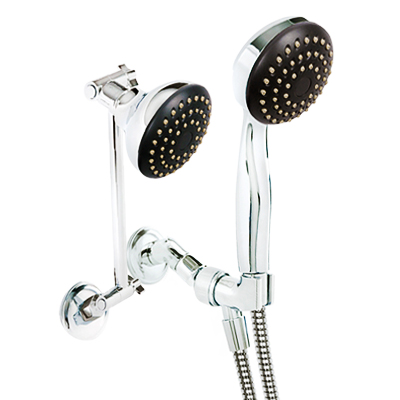How to Choose the Right Hot Water System for Your Home
Hot water systems are an essential part of any home. If you want to upgrade or replace your current hot water system, you’ll want to choose the best option for your home. But with so many different types of hot water systems on the market, how do you know which suits your home?
In this blog post, we’ll explore the different kinds of hot water systems, their costs, and the various features to consider when choosing the right one for you. With this comprehensive guide, you’ll have all the information you need to decide on the best hot water system for your needs.
Save money on hot water.
Hot water is one of the most significant contributors to a household’s energy bills. In most homes, the bathroom, laundry and kitchen are the primary uses of hot water, adding up to 25% of the total household energy consumption. To reduce your hot water costs, you can do several things, such as installing a low-flow water-efficient shower head, washing your clothes in cold water, fixing any dripping hot water taps, insulating any exposed hot water pipes and having your hot water system serviced regularly.

If you are looking to save more money on hot water, replacing your existing hot water system with an energy-efficient option is the best solution. When looking for a new system, it’s important to consider all different types of hot water systems. The time your hot water system is on can vary depending on the needs of your household and the type of hot water system you have installed. Keeping an eye on your hot water system and how often it runs will help optimise your energy usage and save money on your energy bills. Additionally, proper insulation is vital to maintaining efficiency and reducing energy bills with either system.
What is the most efficient way to heat water for a home?
The most efficient way to heat water for a home depends on what services (electricity/gas) you have available and the space available (rooftop/passage at the side of the house, space under the kitchen sink). Electric storage, gas instantaneous, solar and heat pump hot water systems have pros and cons regarding efficiency and cost, depending on your situation and budget.
When choosing a hot water system, it’s also important to consider the size of the system as well as any maintenance that may be required over time.

Installing traditional electric storage systems is generally cheaper and easier, but they cost more to run unless coupled with solar PV. The solar hot water system installation requires panels on the roof and a storage tank, whereas, in cold climates, it may be necessary to use a gas or electric booster. Although heat pumps are more expensive to install, they provide low running costs and long-term savings over conventional electric water heaters. Gas Hot Water Systems offer an alternative option for those who prefer to use gas as their fuel source. Gas-powered storage systems are being phased-out. However, gas instantaneous heaters offer a reasonably efficient option where space for a heap pump storage tank isn’t available.
Choose the right size for your hot water system.

When it comes to selecting the right hot water system for your home, one of the most important considerations is what size system you need. Knowing the size of the system best suited to your needs depends on a few factors. First, consider how many people will be using the water heater on a daily basis and how many showers or other outlets will be attached to the heater.
Then, consider your family’s water usage habits – such as the type of shower heads used in your bathrooms, if you use a dishwasher and whether you use hot water in your washing machine cycle. Finally, depending on whether you choose a gas or electric hot water system, you should also consider how much power or fuel you’re looking to use.
Once you’ve considered all these factors, you can start to determine the size of the electric or gas hot water system that best meets your needs. Generally, each person in your home uses around 50 litres of hot water daily. If you have three people in your household, you would require a system capable of providing approximately 150 litres of hot water daily.

By taking the time to determine the correct size hot water system for your home, you can ensure that your family always has enough hot water and that you’re using energy wisely.
Which is better, gas or electric hot water system?

When it comes to choosing between a gas or electric hot water system for your home, there are several factors to consider. Traditional electric storage hot water systems are usually less expensive to install than gas systems, though they achieve only a 1:1 efficiency ratio when converting electric energy to heat. On the other hand, gas instantaneous hot water systems are more energy-efficient as there are no heat losses from a storage tank.
Still, installation can be more expensive and involve more complicated installation procedures. Additionally, gas hot water systems use either natural gas or Liquefied Petroleum Gas (LPG) to heat water, which can harm the environment.
Electric Heat Pump Water Systems are a great option as they achieve up to a 1:5 efficiency ratio when converting electric energy to heat and reduce greenhouse gas emissions, but they have higher upfront costs. Ultimately, deciding between a gas or electric hot water system will depend on the size of your home, budget, and environmental concerns.
How long do hot water systems last?
The life expectancy of a hot water system will depend on the type of system you have. Generally, hot water systems can last between 10-15 years. However, the quality of the materials used and the usage of the system can also impact its lifespan. For example, if your system is regularly serviced and maintained, it will generally last longer than if it isn’t. It is also important to note that hard water can decrease the lifespan of your hot water system, so be sure to regularly maintain your system to prevent any build-up of scale.

It is also important to note that hard water can decrease the lifespan of your hot water system, so be sure to maintain your system to prevent any build-up of scale regularly.
Ultimately, the life expectancy of your hot water system will depend on the quality of the system and how well you take care of it.
When choosing a hot water system, there are a few different materials to consider. Glass-lined tanks typically last between 5 and 10 years, while stainless steel tanks usually last between 8 and 12 years. Corrosion of the tank can be prevented by cathodic protection – use of a replaceable rod called ‘sacrificial anode’. This should be checked regularly, and replaced as necessary, following the instruction in the user manual.
Heat pumps have a long life expectancy and can last up to 10 years. Regardless, whether you are deciding between an Electric or a Gas Hot Water System, it is vital to consider the material the hot water system is made from, the manufacturer warranties on all components, and the availability of qualified service network. All these will affect the lifespan of the system.
Should I replace my water heater before it fails?
If you notice any of the signs of a failing water heater, it’s best to replace it before it fails completely. Replacing a water heater before it fails can save you money and prevent property damage. It can also help avoid unexpected downtime and disruption to your family’s routine. Over time, electric hot water systems can become less efficient due to the build-up of sediment in the tank, while gas hot water systems can suffer from rust and corrosion. If your electric or gas hot water system is more than 8 years old, it may be time to consider replacing it with a newer, more efficient model.
Here are some signs that your water heater may be failing: lack of hot water, strange noises coming from the water heater, red or brown water coming from the tap, visible rust on the water heater tank, or puddles forming around the water heater. It’s essential to keep an eye out for these signs and replace your Electric Hot Water System or Gas Hot Water System before it fails completely.

When it comes to finding the right hot water system for your home, there are many things to consider. First, it is essential to research the most efficient way to heat water for a home, the size of the system needed and whether a gas or electric system is best. Additionally, it is crucial to know how long a hot water system will last and whether to replace it before it fails. Ultimately, weighing all the options carefully is important to choose the right hot water system for your home.
